Girls in ICT Day: Attend the Global Marathon in Digital Skills Development
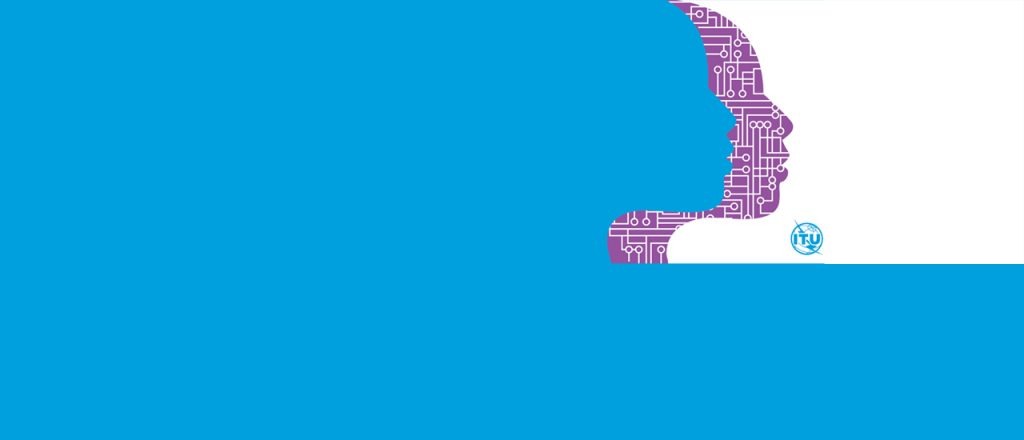
There’s a lack of gender diversity at all levels in the technology sector. This is partly because the number of female students in mathematics, engineering, computer science, and science is disproportionately low around the world. So how do we close this gap?
Support for the education of women and girls in the ICT sector is consistent with the Sustainable Development Goals (SDGs) – in particular SDG 5, aimed at achieving gender equality and empowering all women and girls through, among other things, information and communication technologies.
The Women’s Special Interest Group (Women SIG) of the Internet Society is committed to promoting the participation of women in the Internet ecosystem, especially considering the importance to increase the participation of girls and adolescents in Information Technology and Communication.
This April 25, International Day of Girls in ICT, promoted by the International Telecommunication Union (ITU), aims to reduce the digital gender gap and to encourage and motivate girls to participate in technology careers. With the support of the Internet Society Chapters and local civil society organizations, we’re planning to celebrate the day with a global marathon of training in digital skills development. We want to motivate girls and teenagers to study and Continue reading
10 Years of Auditing Online Trust – What’s Changed?
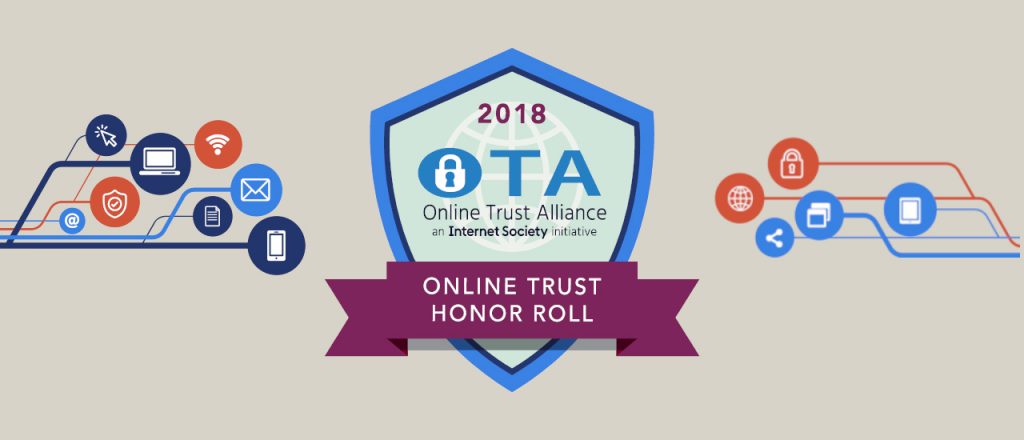
Last week we released the 10th Online Trust Audit & Honor Roll, which is a comprehensive evaluation of an organization’s consumer protection, data security, and privacy practices. If you want to learn more about this year’s results, please join us for our webinar on Wednesday, 24 April, at 1PM EDT / 5PM UTC. Today, though, we thought it would be interesting to see how the Audit and results have evolved over time. Here are some quick highlights over the years:
- 2005 – The Online Trust Alliance issued “scorecards” tracking adoption of email authentication (SPF) in Fortune 500 companies.
- 2008 – Added DKIM tracking to the scorecards, and extended the sectors to include the US federal government, banks, and Internet retailers.
- 2009 – Shifted from scorecard to “Audit” because criteria were expanded to include Extended Validation (EV) certificates and elements of site security (e.g., website malware).
- 2010 – Introduced the Honor Roll concept, highlighting organizations following best practices. Only 8% made the Honor Roll.
- 2012 – Expanded criteria to include DMARC, Qualys SSL Labs website assessment, and scoring of privacy statements and trackers. Shifted overall sector focus to consumer-facing organizations, so dropped the Fortune 500 and added Continue reading
The Week in Internet News: Arkansas Reverses Ban on Municipal Broadband
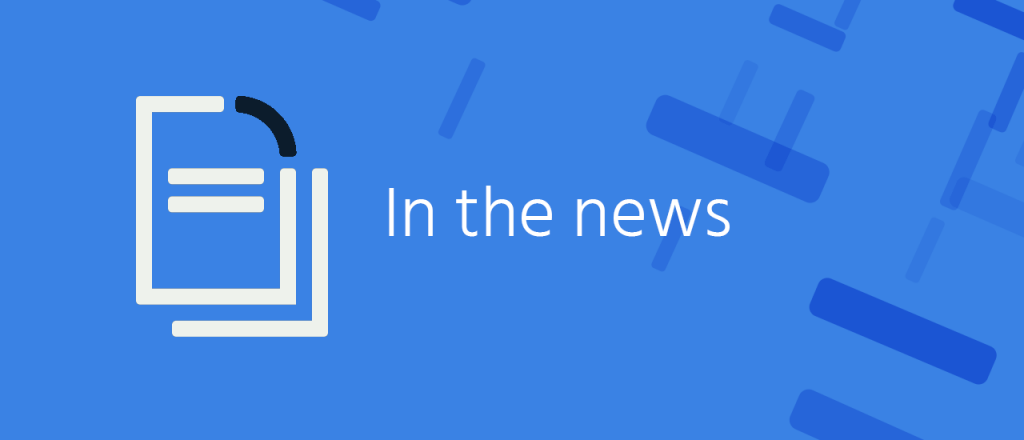
Change in direction: A story at CityLab.com examines why the state of Arkansas has moved to rescind a 2011 ban on community-financed broadband networks. The state is the least connected in the U.S., according to one group, and residents have complained about “lousy” broadband options.
White and male: The Artificial Intelligence too white and too male, according to research from the AI Now Institute at New York University. About 80 percent of AI professors are men, and just 15 percent of the AI research staff at Facebook and 10 percent at Google are women, notes a story on the research at The Verge. Racial minorities also make up a small percentage of AI staff at large tech vendors.
Comey vs. encryption: Former U.S. FBI Director James Comey, who pushed for ways for law enforcement agencies to break into encrypted devices while he was in government, now says he would have taken a different approach to the encryption debate, the Washington Post reports. Comey says it was “dumb” to launch the encryption debate by criticizing U.S. tech companies. However, he still believes law enforcement agencies need access to encrypted communications.
Censorship vs. disinformation: The Ukraine government Continue reading
A World Without the IGF

Last week in Geneva, the Internet Governance Forum (IGF) Multistakeholder Advisory Group (MAG) met to discuss preparations for IGF Berlin. The Internet Society is concerned that the IGF community is showing signs of fatigue and believes that certain things must be improved in order for it to survive in an increasingly crowded Internet policy arena. We also believe the world is much better with the IGF than without it.
As the IGF reaches its fourteenth year, we must ask ourselves if it is still capable of dealing with the myriad governance challenges surrounding the Internet and policymakers – and whether the IGF can continue to evolve the Internet way – into an open and distributed global network of networks grounded in voluntary collaboration.
Imagine a world without the IGF. A world where we won’t be able to welcome people from most corners of the earth, from multiple stakeholder groups, and from diverse viewpoints and perspectives to adress the Internet’s pressing public policy issues. All sharing a common goal, albeit sometimes speaking different languages.
Certain things have indeed improved. We have seen better advanced planning from UNDESA and the IGF Secretariat, along with a supportive, well-organized, and solid support from the Continue reading
2019 Internet Society Board of Trustees Final Election Results & IETF Appointment
The Internet Society Elections Committee is pleased to announce the final results of the 2019 elections for the Internet Society Board of Trustees. The voting concluded on 8 April. The challenge period (for appeals) was opened on 9 April and closed on 17 April.
There were no challenges filed. Therefore the election results stand:
- Olga Cavalli has been re-elected to the Board by our Chapters.
- Mike Godwin and Mieke van Heesewijk have been elected by Organization Members.
- Also, following the process documented in RFC 3677, the Internet Architecture Board has selected and the IETF has confirmed Richard Barnes to serve a second term on the ISOC board.
The term of office for all 4 of these Trustees will be 3 years, commencing with the 2019 Annual General Meeting of the Internet Society, 26-28 July.
The Elections Committee congratulates all of the new and renewing Trustees and expresses its gratitude once more to all the candidates and to everyone who participated in the process this year
The post 2019 Internet Society Board of Trustees Final Election Results & IETF Appointment appeared first on Internet Society.
Applications Open: Training for New Chapter Leaders in Latin America and the Caribbean

For us at the Internet Society, the role that people play in our community is vital to carrying our message in favor of an open and trusted Internet for all. We rely on the contributions, knowledge, and experience of our members. For this reason, the Chapters of the Latin American and Caribbean region have come together to offer and implement a pilot training program for their members.
Active participation of people in their local chapter is one of the main objectives of the program. The people involved will contribute to the four focus areas of the Internet Society’s 2019 Action Plan and will adopt our narrative and tone of voice. The sessions of the program will have facilitators from the LAC region with extensive knowledge on the topics addressed. In addition there will be special sessions with participation of experts from Internet Society staff.
180 seats are available to be distributed among Chapters of the LAC region. The selected candidates will have the opportunity to be trained in Internet Governance; community networks and access; Internet technical security; or the Internet of Things and Public Policy. The general criteria for participating is published here, although it is important to emphasize Continue reading
Leaders of the G7: A Safer World Means Strong, Secure Communication

In the recent G7 outcome document “Combating the use of the Internet for Terrorism and Violent Extremist Purposes“, Ministers of the Interior made commitments on content filtering and “lawful access solutions” for encrypted content, which, if implemented, would greatly weaken the security of the Internet, G7 economies and their citizens.
While there is an urgent need to prevent terrorists and violent extremists from exploiting Internet platforms, facing down terrorist threats and cybercrime requires strong, secure communications. Not the opposite.
We find the commitments in the document cause for alarm.
Rather than encouraging Internet companies to weaken their security, global leaders should be discussing how to increase the use of encryption, make it easier to use, and harder to thwart.
Here’s why:
Encryption: What it is and why it is key to your security
As online threats of cybercrime, mass surveillance, data breaches have grown so has the use of encryption – to protect the confidentiality and the integrity of data that we all depend on.
Every responsible citizen wants to stop terrorism, and “lawful access” sounds like a reasonable way to access potentially crucial intel. The idea is that, under the appropriate legal authorization, legitimate law enforcement agencies Continue reading
Online Trust Audit Finds Better Email Authentication and Encryption; Worse Privacy Statement Scores

Do you know how – or even if – your favorite retailer, or your bank, or your ISP is working to protect you? The Online Trust Alliance recognizes excellence in consumer protection, data security and responsible privacy practices. Today, we released the 10th annual Online Trust Audit & Honor Roll, covering more than 1,200 predominantly consumer-facing websites, and found that 70% of the websites we analyzed qualified for the Honor Roll. That’s the highest proportion ever, driven primarily by improvements in email authentication and session encryption.
Highlights
Overall, we found a strong move toward encryption, with 93% of sites encrypting all web sessions. Email authentication is also at record highs; 76% use both SPF and DKIM (which prevent spoofed/forged emails) and 50% have a DMARC record (which provides instruction on how to handle messages that fail authentication).
It’s not all good news, though. We also found that only 11% of organizations use mechanisms for vulnerability reporting, which allows users to report bugs and security problems. Only 6% use Certificate Authority Authorization, which limits certificate abuse. And overall privacy scores dropped compared to last year, primarily due to more stringent scoring in light of the E.U.’s General Continue reading
The Week in Internet News: Tech Giants’ ‘Ethical AI’ Efforts Scrutinized
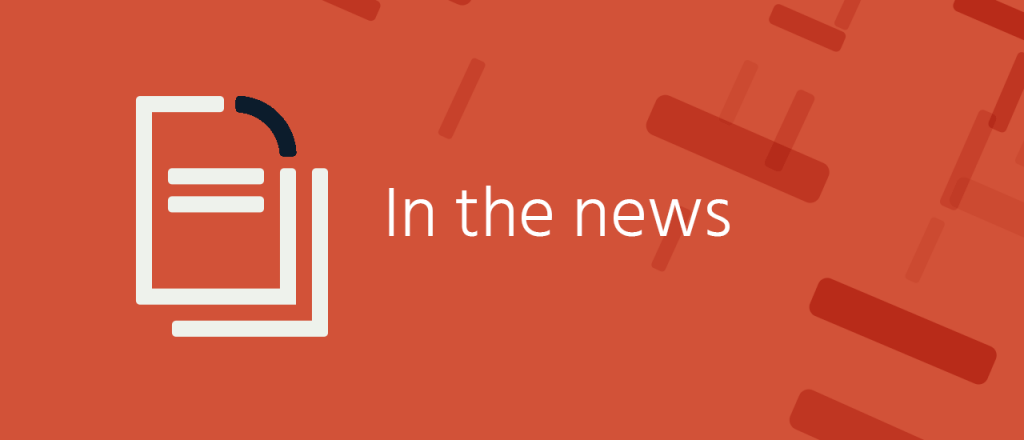
Building nice AIs: Efforts by large tech vendors to think about ways to design “ethical Artificial Intelligence” systems have hit some speedbumps along the way, says Insurance Journal. Google abandoned its newly formed ethical AI council after employee complaints about its membership. Some critics say efforts to create ethical AI teams are attempts by companies to avoid regulations.
No smoking or bikinis: Business Insider India has a look at the efforts of the Chinese government to police Internet and social media content, with smoking, excessive tattoos, and in some cases, bikinis prohibited. At Inke, one of China’s largest livestreaming companies, a group of about 1,200 moderators attempt to keep up with the government’s rules, the story says.
Fake news arms race: Facebook has announced a new round of efforts to fight fake news with updates to updates to News Feed, Messenger, and Instagram, Fortune reports. The social media giant is expanding its fact-checking capabilities, and it is trying to limit the reach of groups that repeatedly spread misinformation. Facebook also says it’s getting better at identifying click-bait.
Comments gone wild: YouTube shut down comments on the livestream of a U.S. Congress hearing on white nationalism after the comments section Continue reading
Privacy First for Security Companies
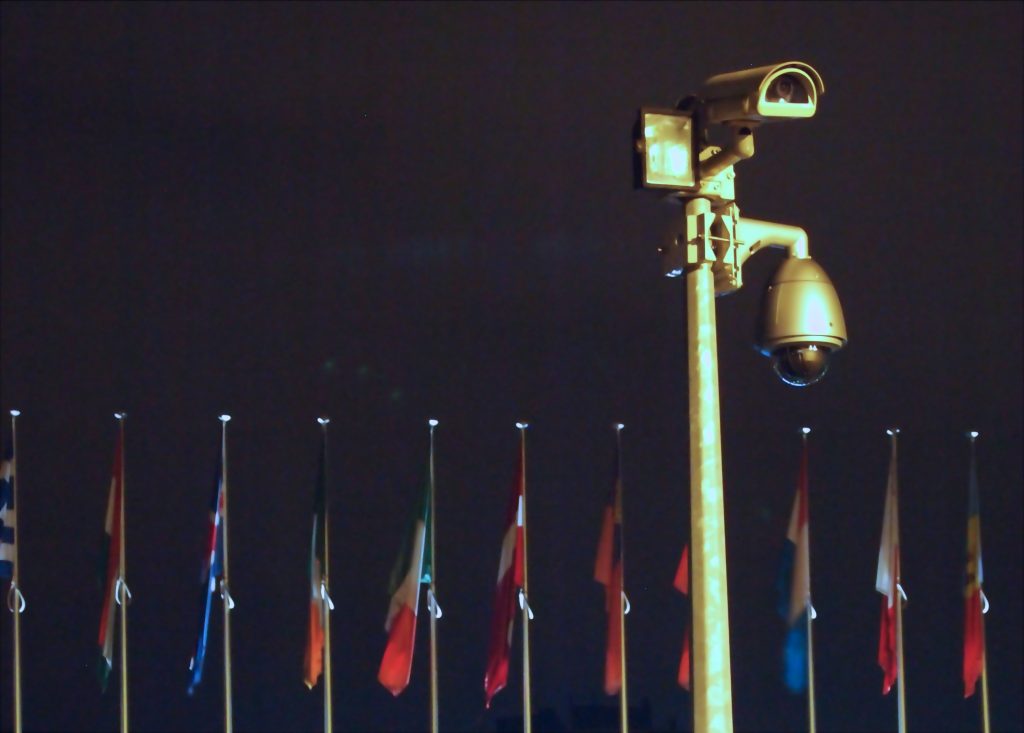
Privacy has become a major issue around the world. Hopeful presidential candidates, such as Elizabeth Warren, have proposed privacy legislation and European countries are beginning to issue their first judgements based on GDPR violations. Given this evolving environment, the Internet Society participated in a panel on data privacy at the ISC-West conference on 11 April 2019.
The conference was sponsored by ADT, one of the largest home security companies and an Internet Society organizational member. The panel included Frank Cona from ADT, Dylan Gilbert from Public Knowledge, Brandon Board from Resideo, and Kenneth Olmstead from the Internet Society.
The discussion focused on two main themes. The first was that in the data-driven economy, user agency is more important than ever. Users must be able to ask companies what data they have about them and be able to update or delete that data. The second was that companies must put privacy at the forefront of their business practices. Privacy cannot be an afterthought, but must be the starting point.
There was not consensus among panelists regarding whether there will be Federal privacy legislation at some point, but it was clear that the security industry should do its best to implement privacy Continue reading
Collaboration, Connectivity, and Self-Determination
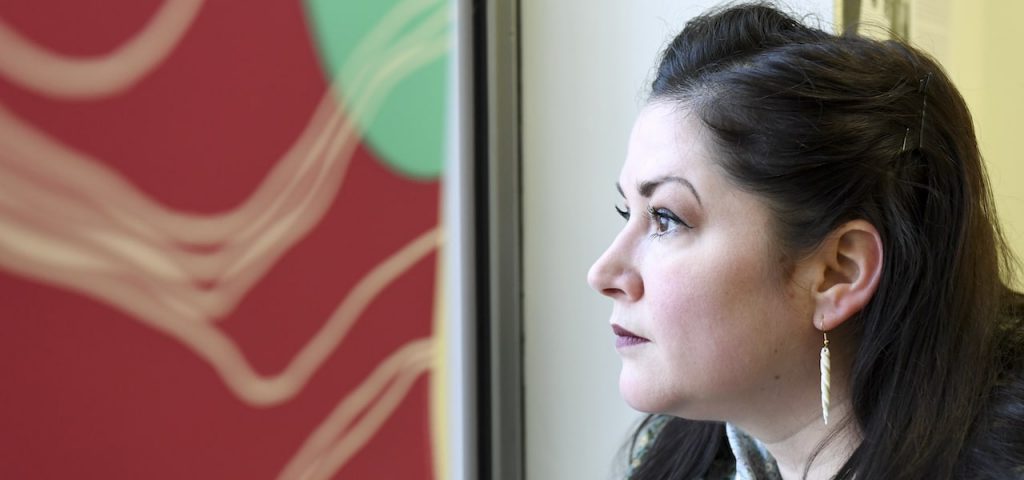
Over 20 million people in North America lack access to fast, affordable, and reliable Internet. In October 2018, the Indigenous Connectivity Summit gathered over 150 Indigenous leaders, policymakers, network operators, and community members in the Canadian Arctic town of Inuvik to focus on a common goal: bringing fast, affordable, and reliable Internet to Indigenous communities. The event featured success stories of community networks across North America to demonstrate the power of communities to lead their own Internet solutions, and how anyone can support them.
Crystal Gail Fraser, a Gwichyà Gwich’in woman who calls Inuvik home, sees collaborative Internet solutions as a critical path to self-determination for her community.
As I stepped off the plane in Inuvik, I inhaled the arctic air. I observed the scenic landscape of Dinjii Zhuh (Gwich’in) and Inuvialuit territory, taking in the familiarity: the snow-covered rolling hills, stunted spruce trees, and ice crystals in the air.

land.
Photo credit: April Froncek
This land and all that it holds, means, and represents, has been critical to Dinjii Zhuh culture, economies, and lifestyles since Ts’ii Dęįį (Time Immemorial).

Internet of Things Devices as a DDoS Vector

As adoption of Internet of Things devices increases, so does the number of insecure IoT devices on the network. These devices represent an ever-increasing pool of computing and communications capacity open to misuse. They can be hijacked to spread malware, recruited to form botnets to attack other Internet users, and even used to attack critical national infrastructure, or the structural functions of the Internet itself (we give several examples from recent headlines in the Reference Section, below).
The problem this poses is what to do about IoT as a source of risk. This blog post includes reflections on events that came to light in recent weeks, sets out some thoughts about technical mitigations, and sketches out the boundaries of what we think can be done technically. Beyond those boundaries lie the realms of policy measures, which – while relevant to the big picture – are not the topic of this post.
Why are we exploring this issue now? Partly because of our current campaign to improve trust in consumer IoT devices.
And partly, also, because of recent reports that, as a step towards mitigating this risk, connected devices will be subjected to active probing, to detect whether or not they Continue reading
Safer Internet Day 2019: Malaysia Gears Up for Cyber Wellness
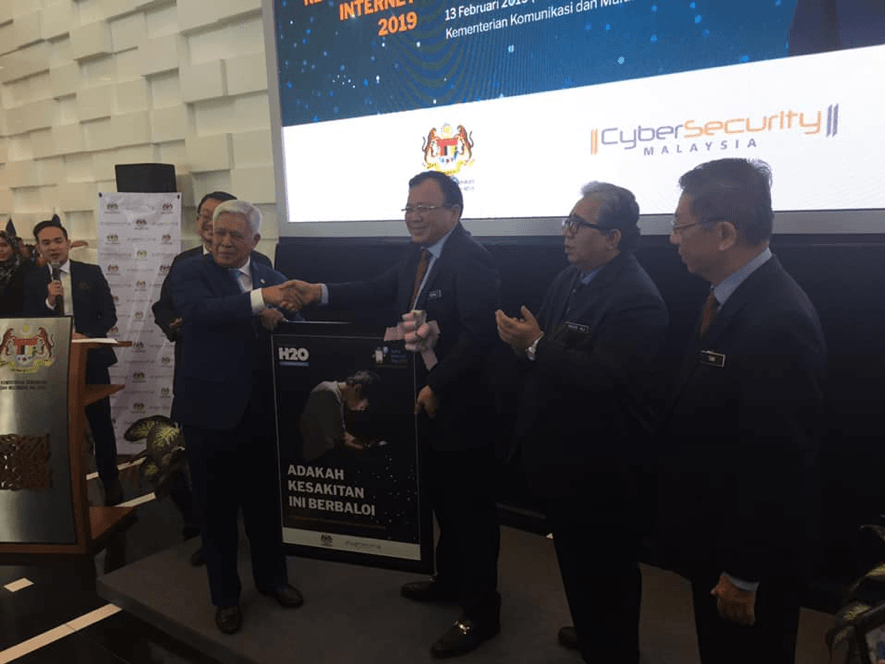
Safer Internet Day is celebrated in over 100 countries each year to promote a more secure Internet. It nurtures and increases public awareness on cyber security, especially to young people across the globe, so that they become more responsible when using technology and digital gadgets. In Malaysia this year, this event was observed over one month, beginning 5 February.
The Malaysian Safer Internet Day campaign was officiated by Eddin Syazee Shith, Deputy Minister of Communication and Multimedia in Putrajaya, Malaysia. It focused on “Cyber Wellness,” with the objective to promote wellness in the digital world through healthy mental well-being and ethical social values.
The Internet Society Malaysia Chapter was a strategic partner in Safer Internet Day 2019. Together with the Ministry of Communications and Multimedia, CyberSecurity Malaysia and other stakeholders from the industry, regulators, and society, various programs were organized to promote cyber wellness, a safer Internet, and nurturing and increasing public awareness on cyber security.
The theme cyber wellness was chosen as young people today have greater access to the Internet and communication devices. Living in an “on demand” interactive digital culture where social media has become an influential platform to their social lives, youth can be exposed to Continue reading
Internet Society and UNESCO Offer a Capacity Building Program for Judges

Trust is vital to the future of the Internet. The best way to build it is to let a diverse group of people and interested organizations contribute their experience and knowledge. For this reason, the Internet Society and the UNESCO Regional Office has developed a capacity-building program for judges, prosecutors, public defenders, and other judicial operators in Latin America and the Caribbean.
This program shares our vision for an open, globally-connected, trustworthy, and secure Internet for everyone. We allied with UNESCO to incorporate a plan related to freedom of expression, privacy, encryption, and access to public information. In this way the program responds to the needs of judicial operators facing real cases related to the use of the Internet.
For Raquel Gatto, Senior Policy Advisor of the Internet Society, the program represents an unprecedented opportunity: “The technical foundations of the Internet show us that collaboration is a fundamental factor for the functioning of the network. The Internet is a network of networks that trust each other, allowing interconnection. The Internet can not exist without such collaboration”.
Guilherme Canela, Regional Councilor for Communication and Information of UNESCO, says, “For 5 years, UNESCO, in cooperation with the Special Rapporteur for Freedom of Continue reading
The Week in Internet News: Facebook Calls for New Internet Regulations
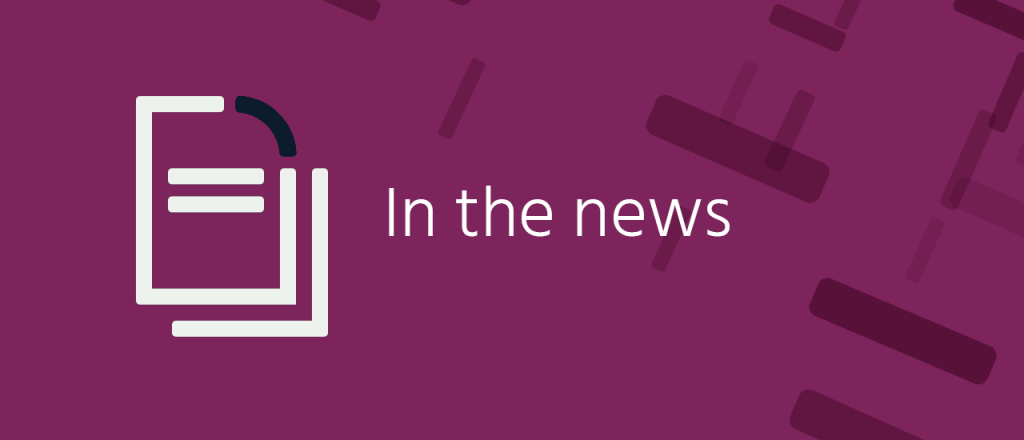
More regulation, please: Facebook CEO Mark Zuckerberg, in an op-ed in the Washington Post, called on governments to get more involved in Internet regulation, including defining harmful content and making rules on how sites should handle it. Governments should also look at new laws to protect elections, to improve consumer privacy, and to guarantee data portability, Zuckerberg said. His ideas weren’t universally embraced, however. The Electronic Frontier Foundation, in a blog post, said there were “fundamental problems” with governments policing harmful content, particularly in defining what’s harmful.
Hold my beer: Australia’s parliament didn’t take long to look at new regulations, with lawmakers passing legislation that would create three-year jail terms for social media executives and operators of other websites that do not remove violent content in an “expeditious” manner, NPR reports. Web-based services could also be fined up to 10 percent of their annual revenue for not complying with the law.
Even more laws: Singapore is the latest country to consider legislation attacking fake news. A proposed law there would require online news sites to publish corrections or warnings about stories the government decides are fake news and remove articles in extreme cases, the Straits Times reports. The Continue reading
Celebrating 50 Years of the RFCs That Define How the Internet Works
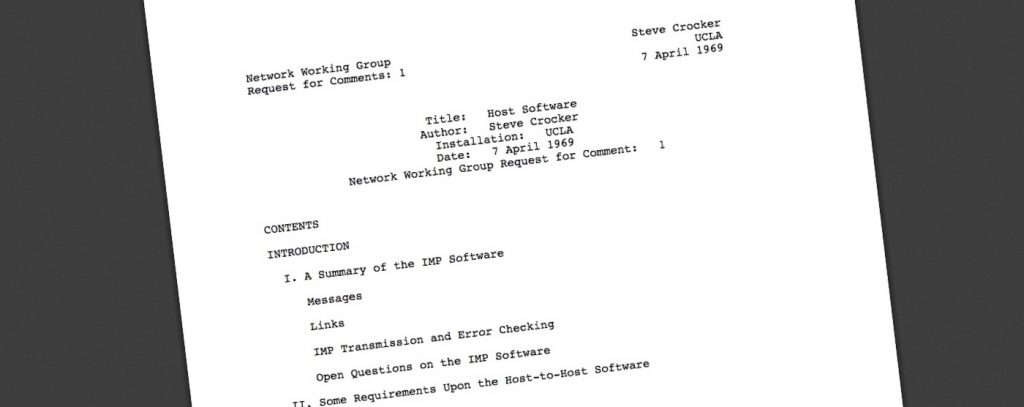
50 years ago today, on 7 April 1969, the very first “Request for Comments” (RFC) document was published. Titled simply “Host Software”, RFC 1 was written by Steve Crocker to document how packets would be sent from computer to computer in what was then the very early ARPANET. [1]
Steve and the other early authors were just circulating ideas and trying to figure out how to connect the different devices and systems of the early networks that would evolve into the massive network of networks we now call the Internet. They were not trying to create formal standards – they were just writing specifications that would help them be able to connect their computers. Little did they know then that the system they developed would come to later define the standards used to build the Internet.
Today there are over 8,500 RFCs whose publication is managed through a formal process by the RFC Editor team. The Internet Engineering Task Force (IETF) is responsible for the vast majority (but not all) of the RFCs – and there is strong process through which documents move within the IETF from ideas (“Internet-Drafts” or “I-Ds”) into published standards or informational documents[2].
50 years Continue reading
Save the Date: Hackathon@AIS
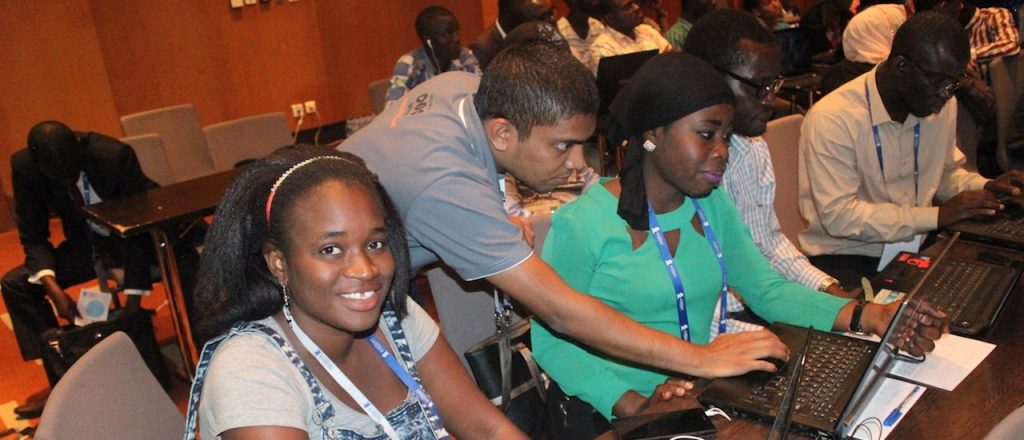
The third Hackathon@AIS will take place in Kampala, Uganda on the 19th and 20th of June 2019. The Hackathon@AIS is an event aimed at exposing engineers from the African region to Internet Standards development and usage. This will be the third event in the series following successful events held in Nairobi (2017) and Dakar (2018), each alongside the Africa Internet Summit (AIS).
See what was covered in 2017 and 2018 Hackathons@AIS here:
2017 Hackathon@AIS
2018 Hackathon@AIS
The event is targeted at network/system engineers, software developers, and/or computer science students to introduce them to existing and evolving Internet standards development that can help further their careers.
Applications for the event will open in April 2019.
Fellowships will be awarded to strong applicants where possible.
Applications will close on 12 May 2019.
For more information please contact Kevin Chege: [email protected].
Read testimonials from the 2018 Hackathon@AIS fellows.
The post Save the Date: Hackathon@AIS appeared first on Internet Society.
2019 African Chapters Advocacy Meeting and Internet of Things Security Engagement Workshop
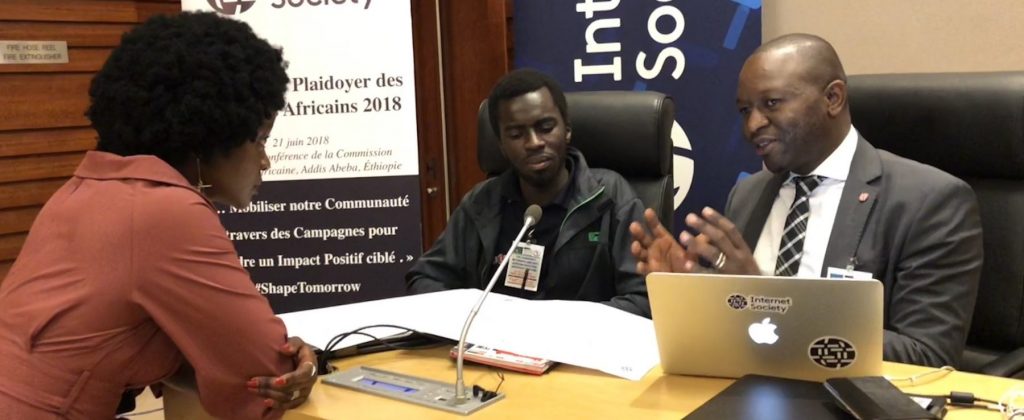
When and where
The 2019 African Chapters Advocacy Meeting will take place from 8-11 April 2019 in Addis Ababa, Ethiopia alongside an Internet of Things (IoT) Security and Privacy Engagement Workshop with the Africa Union Commission (AUC), the Africa Telecommunication Union (ATU), the Regional Economic Commissions (RECs), and other partners.
Why we are doing this
In 2019, the Chapter workshops/Advocacy meetings are our main vehicle to mobilize, strengthen, and engage our Chapters and SIGs around our 2019/2020 focus areas and initiatives. We believe that these meetings represent a unique opportunity to define concrete roles for our Chapters/SIGs to work with us on our global initiatives, and create local impact: “Think global, act local.” It is an opportunity to collect inputs from our regional community for future planning and priorities: “From Local to Global.”
How we are doing it
The Chapters meeting, which will mobilize, empower, and engage 30 fellows from 26 Internet Society African chapters and one global SIG to advance the Internet Society 2019 work in the Africa region with a special focus on “Building Trust” (IoT Security Campaign, Privacy & Personal Data Protection, Encryption, User Trust, and Internet Restrictions).
This meeting is also an Continue reading
Enabling the Next Generation of Community Network Builders: A Report on CNXAPAC 2018 and CN Champs
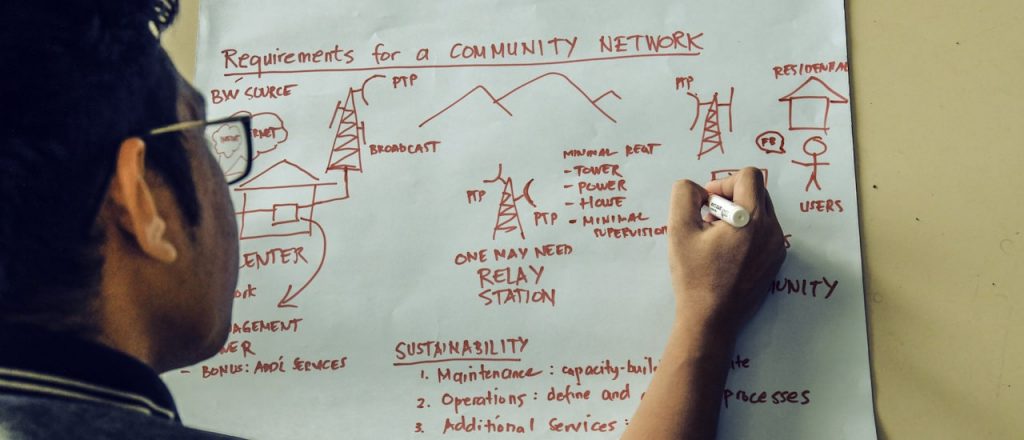
In October 2018, together with our partner Digital Empowerment Foundation (DEF), we organized the 2nd edition of CNXAPAC (Community Network eXchange Asia-Pacific) with a focus on how two sets of community operators – community radio network operators and community (Internet) network operators – could explore synergies in the work they do.
The event was kindly hosted by UNESCO at their Delhi office, and brought together over 50 participants from around the world to exchange knowledge and best practices, and see how the Internet can improve the lives of underserved and unserved communities.
In many parts of the world, community radio stations play an important role in providing information to the public – particularly in rural communities. The community radio community have expertise in setting up radio communications, as well as creating content relevant to their local communities. This presents a wonderful opportunity for this community to add Internet services to their repertoire, and 12 community radio operators from around India were brought to CNXAPAC to learn about Internet community networks, and how these could be deployed in their local communities.
The Internet Society Asia-Pacific Bureau has been working on community networks since 2010 as part of its Wireless for Continue reading
CCAOI-ISOC Delhi Webinar on the Draft National e-Commerce Policy

The Indian government’s Department for Promotion of Industry and Internal Trade has released a draft of the National e-Commerce Policy for public comments by 29 March 2019. The CCAOI, with support from the Internet Society India Delhi Chapter, organized a webinar to discuss the draft policy on 18 March. The objective of the discussion was to inform various stakeholders of the provisions of the draft policy and highlight issues of concern. Watch the recording here.
The session was moderated by Subhashish Panigrahi and myself. It was attended by over 45 participants from different stakeholder communities across the country. The speakers that participated in the session were Devika Aggarwal from NASSCOM, Ankit Anand from Reliance Jio, Nikhil Pahwa from MediaNama, Parminder Singh from IT for Change, and Dr. Mahesh Uppal from ComFirst (India) Private Limited.
To kick off the webinar, Smitha Krishna Prasad of the Centre for Communication Governance at the National Law University presented an overview of the draft policy, following which the speakers shared their perspectives on the draft policy. Towards the end of the webinar, speakers answered questions from the participants in a lively and interactive Q&A session.
Some of the key issues discussed were on the Continue reading